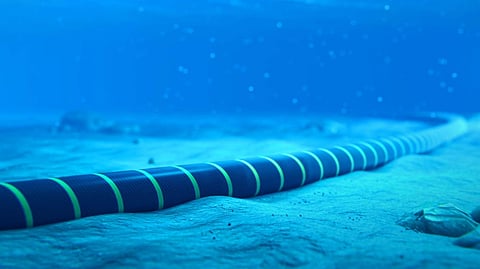Britain walks away from $34 billion Morocco-UK "renewable energy" subsea link project
Britain has rejected a £25 billion ($34.39 billion) Moroccan "renewable energy" project that would have used solar and wind power from the Sahara to supply up to seven million UK homes.
The British government, which is aiming to largely "decarbonise" its electricity sector by 2030, said on Thursday it believed domestic projects could offer better economic benefits.
"The government has concluded that it is not in the UK national interest at this time to continue further consideration of support for the Morocco-UK Power Project," energy department minister Michael Shanks said in a written statement to parliament.
He also said the project did not clearly align strategically with the government’s mission to build homegrown power in the UK.
Xlinks' Morocco-UK power project would have tapped Moroccan "renewable energy" via what would have been the world's longest subsea power cable.
The plan involved building 3,800 kilometres (2,361 miles) of high-voltage direct current subsea cables from Morocco to southwest England.
The company had been seeking a guaranteed minimum price for the electricity supplied, known as contract for difference, from Britain's government.
Xlinks chair, former Tesco chief executive Dave Lewis, said the company was bitterly disappointed by the decision.
“Over £100 million ($137.38 million) from leading energy sector players has already been spent on project development, and demand from lenders to participate in the construction phase is greater than we require," he said in an emailed statement.
"We are now working to unlock the potential of the project and maximise its value for all parties in a different way," Lewis said.
The project had originally been designated by the previous Conservative government as being of "national significance" but faced funding and regulatory hurdles. The early investors in the project included Abu Dhabi energy firm TAQA, Total Energies and Octopus Energy but the company has not disclosed the exact percentages each company holds.
(Reporting By Susanna Twidale and Sam Tabahriti; Editing by Catarina Demony and Jane Merriman)


